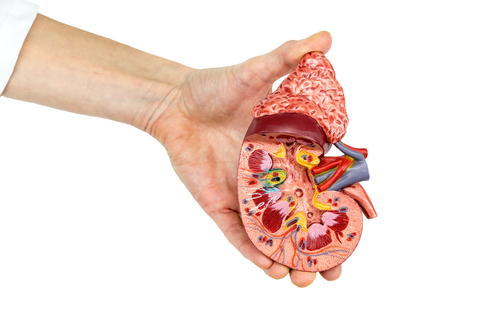Similar Genetic Mutations Could Show that Kidney Disease Types Are Actually Stages of Progression, Study Says

Three different kidney disease types caused by similar genetic alterations may actually represent different stages of disease progression, according to the authors of a study published in Cytogenetic and Genome Research.
In the study, “Three Novel Heterozygous COL4A4 Mutations Result in Three Different Collagen Type IV Kidney Disease Phenotypes,” researchers identified three new mutations in the COL4A4 gene that were linked to three types of kidney disease.
Genetic variants of the gene that encodes collagen type IV (COL4) protein have been associated with several familial kidney diseases, including thin basement membrane nephropathy (TBMN), autosomal dominant Alport syndrome (ADAS), and focal segmental glomerulosclerosis (FSGS).
Despite the shared genetic cause, these three diseases differ in clinical diagnosis, treatment, and prognosis. Improved insights into the underlying features of each collagen type IV-associated disease may help enhance care and treatment of these patients.
A team led by researchers at Nanjing University School of Medicine reviewed three cases of collagen type IV kidney disease caused by COL4A4 mutations.
Among 300 patients suspected of familial kidney disease that were tested between 2015 and 2017, the researchers identified three patients that were carriers of one copy of COL4A4 variants (called heterozygous mutations).
According to the criteria from the American College of Medical Genetics and Genomics, the COL4A4 variants identified were potentially harmful.
One patient was a carrier of the COL4A4 p.Ser513Glufs*2 variant and was diagnosed with ADAS. When researchers compared his clinical profile with that of his daughter, who had the same mutation, they found different clinical profiles. The father had increased levels of blood and protein in the urine (called hematuria and proteinuria, respectively), and impaired hearing. His daughter had only isolated hematuria without additional renal symptoms.
These results suggest that this “heterozygous mutation causes clinical features that can differ depending on the age of the patient,” the researchers stated.
When the team compared the clinical presentations of the three patients, they found that all had mild hematuria, proteinuria not associated with higher blood creatinine levels, and progressive renal injury.
Based on the clinical similarities of TBMN and ADAS, the researchers believe that “TBMN and ADAS may be different phases of collagen type IV kidney disease.” In addition, they also suggest that COL4A4 gene mutations play a direct role in the development of kidney impairment, and that FSGS may be secondary to that.
“We propose that the TBMN, ADAS, and FSGS collagen type IV kidney disease subtypes actually represent different phases of disease progression,” the researchers said.







Leave a comment
Fill in the required fields to post. Your email address will not be published.